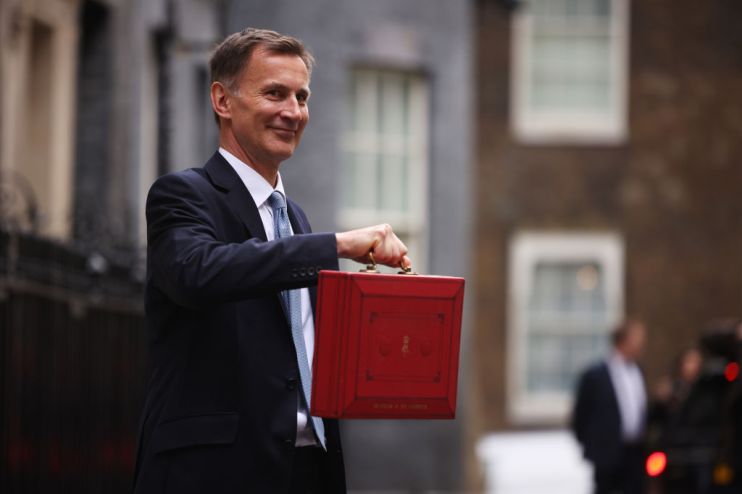Britain has little money left – and it needs politicians who are honest about that

It may not be an easy vote winner, but Britain needs politicians who are honest about our fiscal reality, writes Adam Hawksbee
It’s quite hard to explain your job when you work at a think tank. At its simplest, we come up with ideas. When they’re good, they are picked up by politicians and become government policy. An election year, surely, should be a seller’s market? Not quite. In today’s climate, a viable idea usually has to be entirely cost free.
Because in case you hadn’t noticed, there really is very little money left. If politicians want new spending or tax cuts they need to find somewhere else to reduce budgets or increase taxes. Any idea that isn’t “costed” won’t get near a manifesto or survive a Today programme interview. But in matching any new pledges to nominal savings, the point is being missed. Britain needs a much bigger conversation about our budget – and right now, nobody seems willing to lead the charge.
The problem isn’t only economic growth. Yes, one reason we have less money today is because growth has been lower in the last two decades. But focusing solely on economic growth, either as the cause of or solution to our current problems, misses the point.
Our current fiscal pressures come from four trends. First, pandemic spending added significantly to our national debt, and rising interest rates have dramatically increased our payments on that debt. Second, and much less discussed, the Treasury will have to pay the Bank of England back for losses on its QE programme to the tune of about £170bn over the next decade. Third, while budget reductions made in response to the financial crisis have largely reversed, public sector productivity has flatlined – particularly in the NHS and social care. Fourth, an ageing society is placing unprecedented demand on health services and adding to the bill for state pensions.
Both the government and the opposition need to be frank about where we are. The Chancellor’s sums, checked by the OBR, definitely add up. But only because of some bold assumptions about post-2025 departmental budgets and investment levels. Cuts to National Insurance and enhanced investment allowances may well increase growth and cover the shortfall. But that’s a big risk. Without the OBR marking their sums, Labour gets away with a bit more creativity. Pledges such as scrapping non-dom status or delivering police force “efficiencies” have been used to make press releases add up. But these revenue sources are dubious at best.
The truth is that opening up fiscal space means difficult conversations between politicians and the public. In an ageing society we need to look at property taxes and the sustainability of the pensions triple lock. Truly reforming public services means battles with unions and pressure groups. We need to crack down on handouts to big businesses, cutting subsidies that are more about lobbying influence than industrial policy.
Having one of these fights in an election year would be brave. Having several would be mad. But at the very least, political leadership means setting the scene for these conversations to happen in future and being honest that quick fixes are an illusion.
This is the tragedy of our current politics. The government doesn’t have the electoral space to have unpopular conversations. And the opposition is so nervous about their polling lead that they are completely unwilling to.
There have been rare moments when frontline politicians have championed realism. In the summer of 2022, Kemi Badenoch launched her Conservative leadership bid by arguing that politicians needed to level with voters and stop making promises they couldn’t keep. “I want to tell the truth,” she pledged.
It might be a pipedream to look for such honesty as parties gear up for the polls. But after an election, regardless of the outcome, Britain is going to need a better conversation about what we can and can’t afford.
Adam Hawksbee is deputy director of Onward think tank